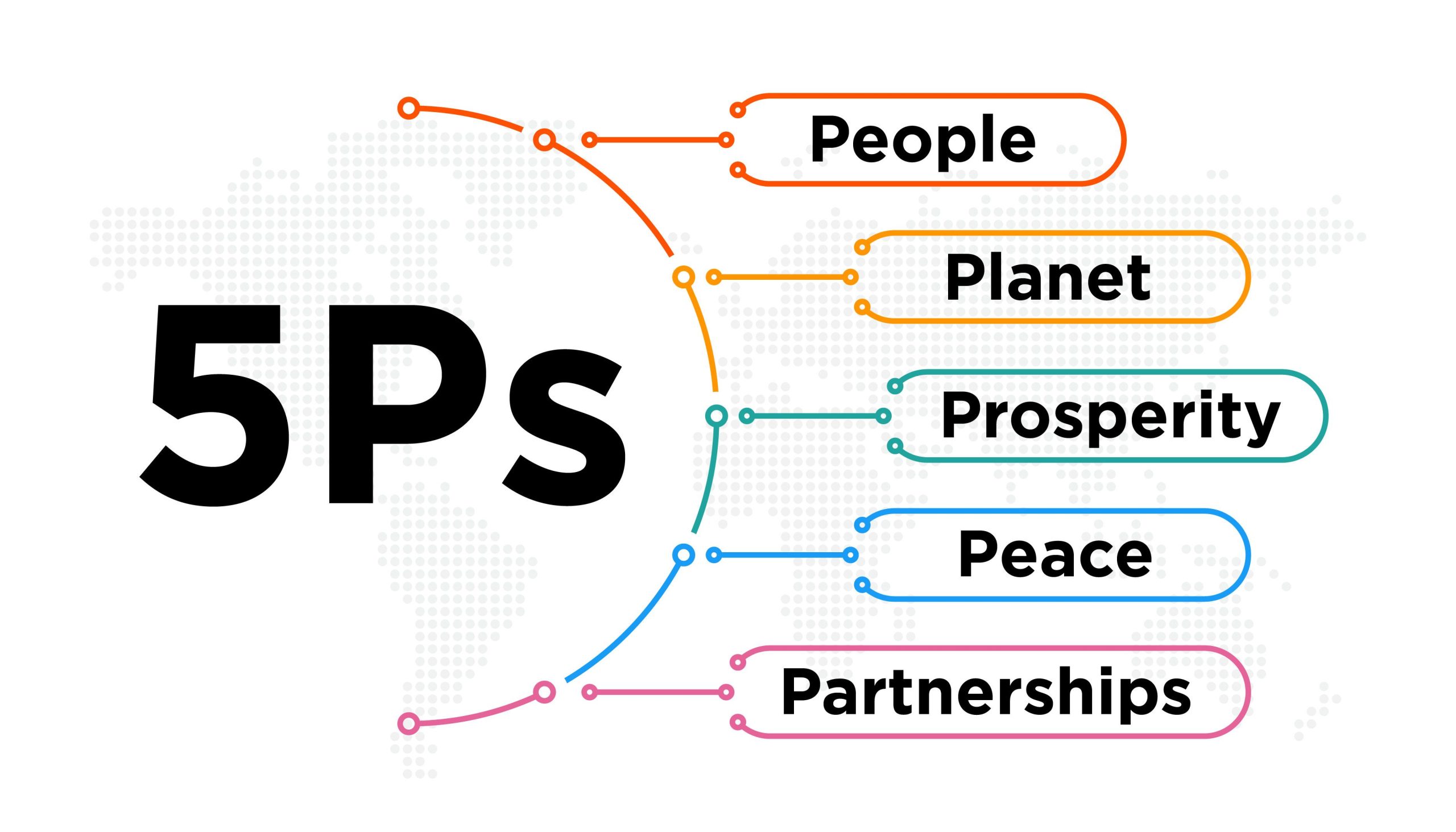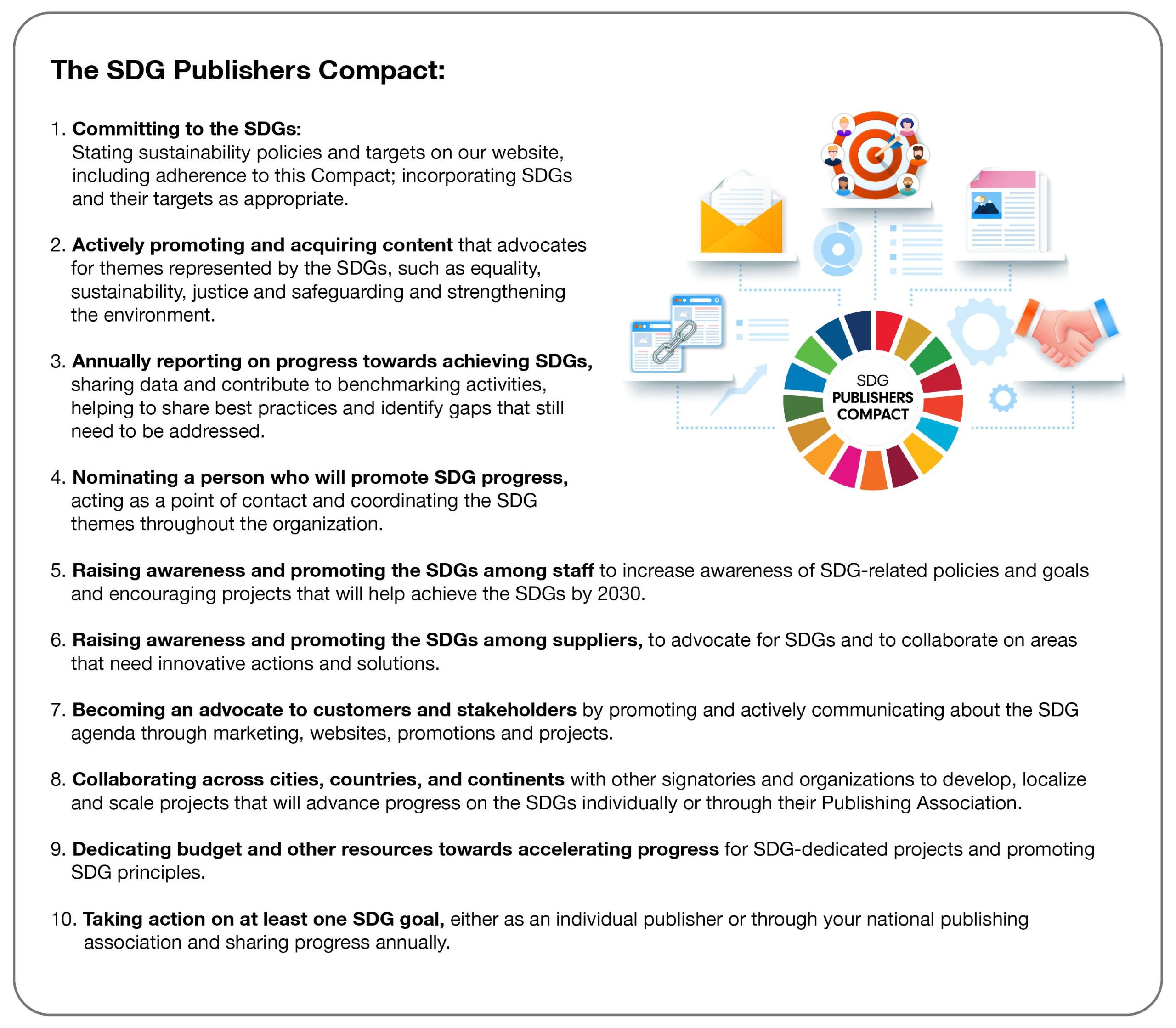Making Real Progress towards the SDGs: What Publishers Can Do
Posted on : November 22nd 2022
Originally titled "Transforming our World: the 2030 Agenda for Sustainable Development," the 2030 Agenda was officially adopted by the United Nations General Assembly in 2015. The stated goal of the new global agenda is to lead the world toward a resilient path that emphasizes sustainable development. To that end, the 2030 Agenda is guided by five principles known colloquially as the "5 Ps"- people, planet, prosperity, peace, and partnerships.

The scale and profound ambition of this new agenda is reflected in the 17 Sustainable Development Goals (SDGs) and 169 specific targets established with these central ideas in mind and to be pursued over a period of 15 years.
SDG Publishers Compact
The Sustainable Development Goal (SDGs) Publishers Compact is a non-binding pledge recognizing the publishing industry's obligation to contribute to developing a sustainable future. During the Decade of Action (2020-2030), signatories plan to publish books and journals that educate, develop, and inspire others to take similar action in support of the SDGs.

Publishers are committed to influencing change through the content and products they create and publish for a wide range of audiences. Collectively, they have provided essential forums for debating SDG topics such as inequality, health, poverty, and the environment. More and more publishing houses are classifying their catalogs according to the SDG framework, facilitating the organization of content by booksellers and distributors in ways that support the SDG agenda.
Tackling environmental concerns and problems
There is now widespread agreement among scientists that climate change is occurring, and that swift action is necessary to keep global temperatures below the two degrees Celsius threshold set by the Paris Agreement.

In September of 2021, leaders in the book and journal industry unified in their appeal for action on climate to be prioritized. This included, among others, the International Association of Scientific, Technical, and Medical Publishers (STM), the International Publishers Association (IPA), and the Association of Learned and Professional Society Publishers (ALPSP).
In an effort to mitigate climate change and lessen their environmental imprint, publishers are committing to a number of environmental goals. Many signatories of the compact are reiterating their dedication to the SDGs they have selected by adopting policies that encourage sustainable consumption and production. Additionally, publishers have been supporting cutting-edge research and strategies both inside and outside their respective organizations to address the global climate catastrophe.
Open access can help reduce access disparities in the research community
Each of the SDGs focuses on fostering a more diverse and inclusive society while also working to eliminate inequalities. In terms of research capabilities, funding, and access, the COVID-19 outbreak highlighted the increasing disparity between the Global North and Global South.
An increasing number of publishers are finding the motivation to create novel OA models focused on research equity as a result of their participation in the compact. Moving towards completely open-access publishing is not a one-size-fits-all approach. Options like APC waivers, sliding scales of publication fees, discounts, and an initial free submission period can enhance access to OA journals for authors and readers from low- and middle-income nations (LMICs).
Participation in programs such as Research4life is another excellent option for scholarly publishers to address inequalities. Research4life provides qualifying institutions in low- and middle-income countries with free or low-cost online access to peer-reviewed content.
Conclusion
A growing number of publishers are now labeling SDG-related content on their websites and platforms. Along with disseminating SDG material, publishers are well-positioned to assist authors in reaching larger audiences post-publication.
Robust data management is essential for effectively monitoring and implementing SDG objectives. The Straive Data Platform (SDP) is an AI/ML-powered engine that automates diverse data collection in text, audio/video, and image file types. SDP, combined with our team of taxonomy development and classification, can assist in the development and deployment of customized models for SDG indexing, as well as the creation of dashboards based on indexed assets that aid in trending, tracking, and reporting.
Straive has also been making strides to incorporate ESG practices across its value chain as the importance of corporate participation in achieving the 2030 SDG targets has risen.
Download our Whitepaper to learn more about how publishers have fostered innovative research and approaches to expedite progress toward achieving the SDGs by 2030.
We want to hear from you
Leave a Message
Our solutioning team is eager to know about your
challenge and how we can help.